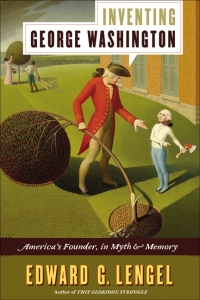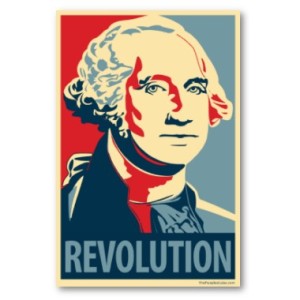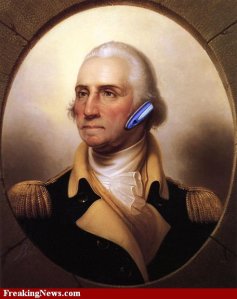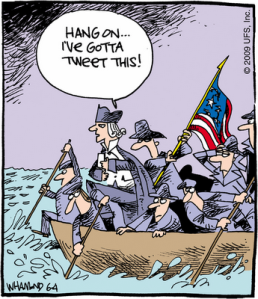At the time of writing this book, Edward G. Lengel was Editor-in-Chief of the Washington Papers Project and thus spent hours and hours “in the company” of George Washington. As someone who therefore has had the truth in hand, he has marveled over the tenacity of falsehoods about Washington. The purpose of this book is to explore both the myths and the mythmakers to determine what purposes these distorted memories of “The Father of Our Country” have served for Americans.
The study of collective memory is incredibly interesting, because, as Yael Zerubavel points out:
“[It] continuously negotiates between available historical records and current social and political agendas. In this process of referring back to history, collective memory shifts its interpretation, selectively emphasizing, suppressing, and elaborating different aspects of those records. History and memory, therefore, do not operate in totally detached, opposite directions; their relationships are underlined by conflict as well as by interdependence.” Representations 45 (Winter 1994), at 73.
Lengel presents various examples of the metamorphosis of Washington’s memory, arguing that the changes reflected whatever contemporary collective self-image Americans wanted to reinforce. I should emphasize that Lengel is not talking about the “horizon of understanding” of different eras, nor about the inevitable influence of a historian’s own conceptual lenses. Rather, he refers to intentional manipulation in the interest of serving social and political agendas.
He starts with The Life and Memorable Actions of George Washington by “Parson” Mason Locke Weems, first published in 1800, averring “it contained some of the most beloved lies of American history, including the famous cherry tree myth, and spawned scores of imitators.”
As he takes us on a tour of the historical representation of Washington through the ages, he also comments on the cultural factors that probably contributed to the ways in which Washington was portrayed. Perhaps most interesting to readers will be his analysis of the current situation, in which “spurious Washington quotations, disseminated in the name of politics and religion, have also gained renewed popularity at the beginning of the twenty-first century.” He cites misquotations by gun rights advocates, by Senator John McCain, by former Vice President Al Gore, and in the most egregious example, by Congresswoman Michele Bachmann. He also recounts anecdotes of stories about Washington and marijuana, Washington and ghosts, and of course, Washington and aliens.
He concludes by noting:
“History is always in danger of growing stale through repetition. No one wants to hear the same old tale repeated over again. … Unfortunately, the temptation to veer from the straight and narrow in the search for historical truth is well-nigh overwhelming, and nowhere more so than in the search for the truth about George Washington.”
Evaluation: Lengel has written a very readable book that dispels some of the most popular, and erroneous, myths about George Washington. He also offers insights into why the historical representation of our first president has been deemed too important to be left to just the truth.
Rating: 3.5/5
Published by Harper, 2011











When the kids and I went on our school field trip to DC, we visited Mount Vernon and learned alot about the truths and myths…the cherry tree and the teeth! I also just finished “And the Pursuit of Happiness” which covers some of this stuff too. I spent my youth learning a bunch of falsehoods!
Laughing at Sandy’s comment that she spent her youth learning falsehoods. Ever had the fun of looking at one historical event in school textbooks from different countries? Ethnocentrism reigns! Many of us spend much time considering the nature of national identity as framed by significant events when in fact it is more often framed by myth surrounding those events as you discuss here.
jill, i love your eclectic taste in books and the fact that you review such diverse reads! i’m all over the map with my reading and would enjoy this one AND still marvel over before i fall, another book you reviewed and recommended! i swear, without my blogging buddies i wouldn’t ever find such good books!
So much of what we know about various famous figures is good PR, intended to inflate and glorify their images to the public. I can understand why this is done (ostensibly to keep people in awe of their leaders and heroes) but sometimes finding out the real facts can be surprising, and somewhat deflating. Great review on this one, Jill! This is a book I wouldn’t mind trying out!
I live in a house with two history geeks (my husband and daughter) and boy, can they go on about erroneous history. This is a book right up their ally. But, I think George probably had a blue tooth, he seems like an up to the minute guy.
Love the portrait of Washington with the Bluetooth. I think actually Jefferson would be the technogeek but who knows. Parson Weems had quite an imagination. He should have been a novelist – although come to think of it, he wouldn’t have sold so many books with a novel at that time.
It seems that much of what we’ve been taught about our history is false, which is so sad. History is interesting enough without making stuff up.
I love the perspective the book takes. Collective memory is so fascinating.
Wait – you mean Georgie Boy didn’t really grow hemp? That is one of Andy’s favorite T-shirts. I remember nothing from my 8th grade field trip to Mt. Vernon other than the pretty architecture and the gift shop. I bet Tolstoy would have loved this book – he seemed to feel historians were so self-serving and not to be trusted – he would admire Lengel’s efforts at sticking to the facts.
Love the graphics in this post!
So did he have wooden teeth or what?
What a great follow up to Chernow’s “Washington!”
This sounds really interesting if probably a little depressing. (I know the cherry tree story isn’t true, but I WANT it to be. Is that so wrong?) I think the manipulation of historical leaders thing is true all over the place- I remember reading about how when Victoria came to the throne, people suddenly started getting much more interested in Boudica and her efforts to defend Britain from the Romans, and I can’t imagine that was by accident.
Learning about how perceptions of Washington have changed over the years sounds interesting, but I don’t know if it would hold my attention for an entire book.
It wasn’t until high school that I read some book that opened my eyes to the fact that very little that I’d been taught in history class was true. It opened my eyes and made me skeptical of everything I read and heard in classes.
I’m very grateful for that book. (I cannot remember what it was other than it was an expose of the Revolutionary War.) In turn I’m always looking for the real true story behind everything I read and definitely every news story. I’d like this book.
I thought this book sounded interesting. My dad just finished it!
Hahaha, I like the cartoon. I know we should be accurate about historical stuff, but I have to say, some of the fictional stories are damn compelling. I love it when you come across a fantastic story about a historical figure and it turns out to be actually true — but it seems like it’s so rare.
I think I will have to look this one up sometime, Washington fascinates me.
Washington had like all human beings. feet of clay.
He eminently deserves the respect and adulation many like myself have for him. Despite his many faults he had many virtues. He was for his time our Indespensible man who earned the title”Father of his country” May his soul rest in peace.